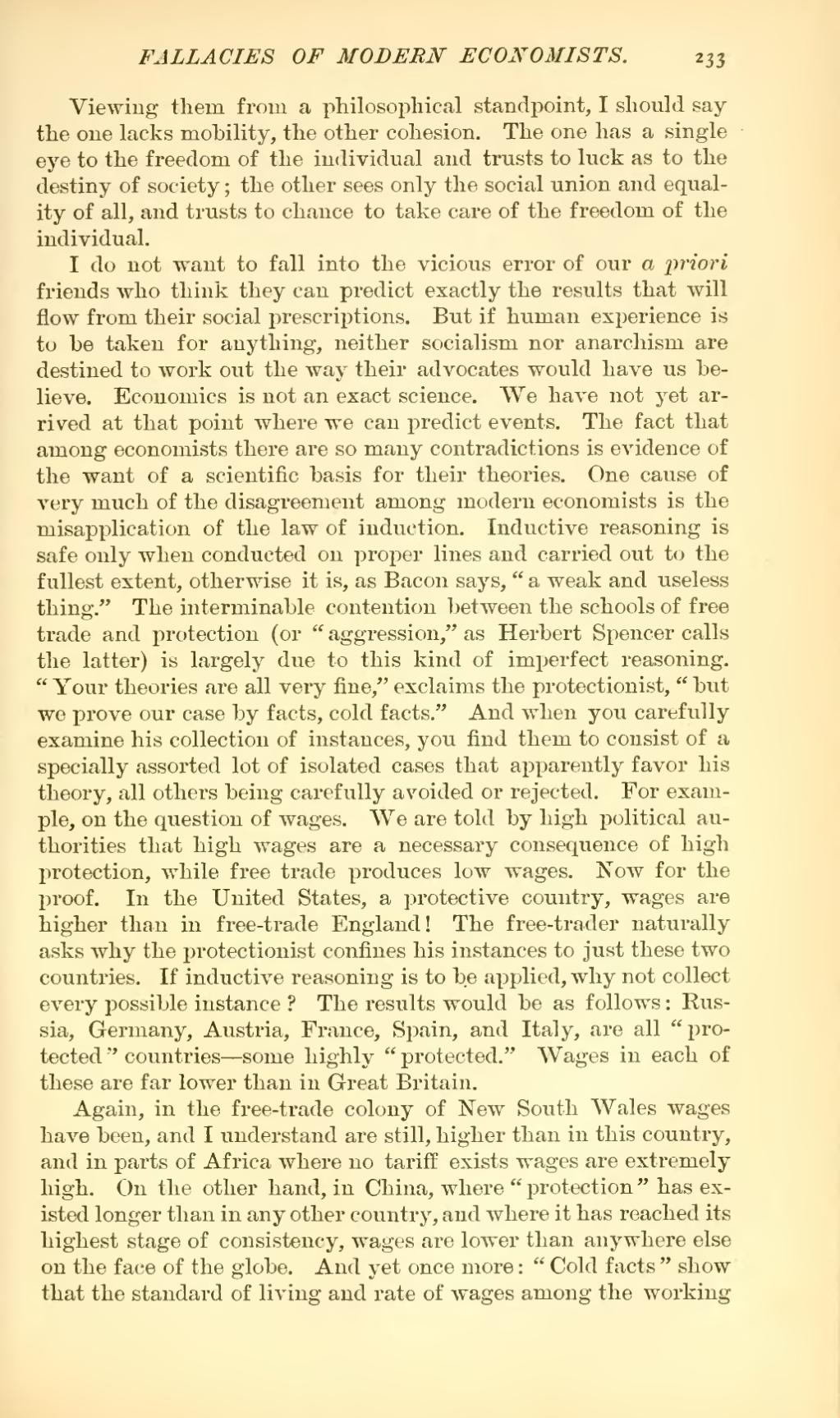Viewing theni from a philosophical standpoint, I should say the one lacks mobility, the other cohesion. The one has a single eye to the freedom of the individual and trusts to luck as to the destiny of society; the other sees only the social union and equality of all, and trusts to chance to take care of the freedom of the individual.
I do not want to fall into the vicious error of our a priori friends who think they can predict exactly the results that will flow from their social prescriptions. But if human experience is to be taken for anything, neither socialism nor anarchism are destined to work out the way their advocates would have us believe. Economics is not an exact science. We have not yet arrived at that point where we can predict events. The fact that among economists there are so many contradictions is evidence of the want of a scientific basis for their theories. One cause of very much of the disagreement among modern economists is the misapplication of the law of induction. Inductive reasoning is safe only when conducted on proper lines and carried out to the fullest extent, otherwise it is, as Bacon says, "a weak and useless thing." The interminable contention between the schools of free trade and protection (or "aggression," as Herbert Spencer calls the latter) is largely due to this kind of imperfect reasoning. "Your theories are all very fine," exclaims the protectionist, "but we prove our case by facts, cold facts." And when you carefully examine his collection of instances, you find them to consist of a specially assorted lot of isolated cases that apparently favor his theory, all others being carefully avoided or rejected. For example, on the question of wages. We are told by high political authorities that high wages are a necessary consequence of high protection, while free trade produces low wages. Now for the proof. In the United States, a protective country, wages are higher than in free-trade England! The free-trader naturally asks why the protectionist confines his instances to just these two countries. If inductive reasoning is to be applied, why not collect every possible instance? The results would be as follows: Russia, Germany, Austria, France, Spain, and Italy, are all "protected" countries—some highly "protected." Wages in each of these are far lower than in Great Britain.
Again, in the free-trade colony of New South Wales wages have been, and I understand are still, higher than in this country, and in parts of Africa where no tariff exists wages are extremely high. On the other hand, in China, where "protection" has existed longer than in any other country, and where it has reached its highest stage of consistency, wages are lower than anywhere else on the face of the globe. And yet once more: "Cold facts" show that the standard of living and rate of wages among the working
